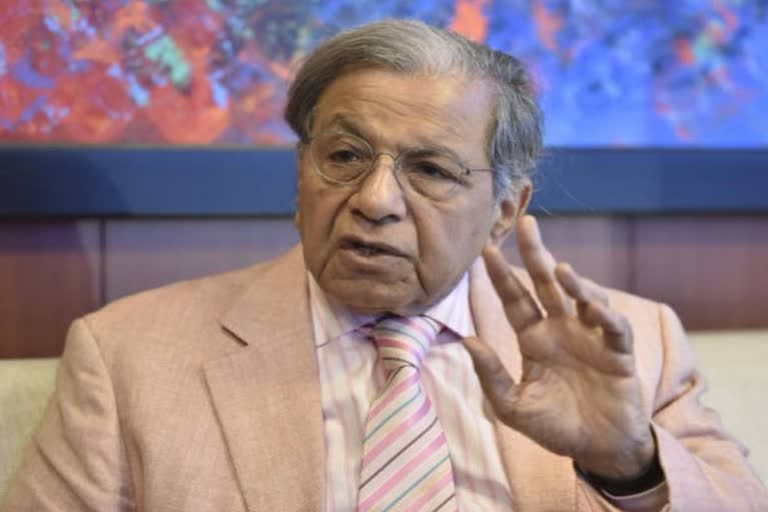New Delhi: The 15th Finance Commission is the first commission which has assigned the highest ever amount, over Rs 4.26 lakh crores, to local bodies such as municipalities and Panchayats, a large part of it will be used in tackling health problems such as water, sanitation and infectious diseases. This is the first time a commission has especially assigned money to tackle the problem of air pollution, said NK Singh, Chairman of the 15th Finance Commission in an exclusive interaction with ETV Bharat.
Singh said it is also the first time a Commission used 2011 population data instead of 1971 population data. He said it was done in a manner to recognise and reward the states for better population management as some southern states resented the change in terms of reference (ToR). Edited Excerpts:
ETV BHARAT: In Niti Aayog's meeting, the PM said a lot of money will go to local bodies. Could you please explain that and how we can further strengthen them?
NK SINGH: Significant resources will go to local bodies. Devolution to local bodies will be Rs 4.26 lakh crore during the award period. It is a significant hike from the 14th commission. In the action taken report, the Union government has fully accepted this very substantial increase to urban local bodies and Panchayats.
Out of Rs 4.26 lakh crore, we earmarked Rs 70,000 crore for the health sector. It will be used for setting up primary health care centres, testing laboratories and centres for infectious diseases.
We also recommended that at the Panchayat level, priority must be given to national priorities like clean drinking water, open defecation, treatment of faecal matter, water conservation and harvesting. We left nearly 40% of funds untied.
Tackling Air Pollution
We also made two changes, for urban local bodies in metro cities with a population of over 1 million. We brought the issue of air pollution and ease of breathing. The number of deaths because of air pollution is unacceptably high. A challenge fund will be given to those states who achieve the benchmark set by the ministry of environment.
We also assigned Rs 8,000 crore for incubational cities. We realised that congested cities have a higher rate of (Covid) infection than the cities, which are better planned. Newer cities need to come up. India's story in building new cities has been a rather disappointing one.
Also read:Finance Commission assigned large number of resources to local bodies: NK Singh
More resources for local bodies
Finance commission under the constitution is not obliged to give any resources to the third tier. The Constitution says that the finance commission suggests the augmentation of the consolidated funds of the states based on the recommendations of the state finance commission for meeting the expenses of the third tier.
States lax in giving money to local bodies
Our experience is that the state governments have been either lax in constituting their state commissions or lax in implementing their reports. Therefore, the third tier has come to depend almost exclusively on the grants of one kind or the other. This is not the spirit in which autonomy was to be given to the third tier. They must be financially self-sustaining.
Need to reform property laws
We also suggested a compulsory audit of accounts as this is public money. After the GST, which subsumed many of the taxes that were accrued to the third tier, we realised that financial autonomy was a challenge. We suggested genuine use of property tax, we find many states have antique property laws, in many cases, they are next to negligible or not indexed properly, either to the property price or to the behaviour. We also recommended a transition path to account for large public money that will go to them.
